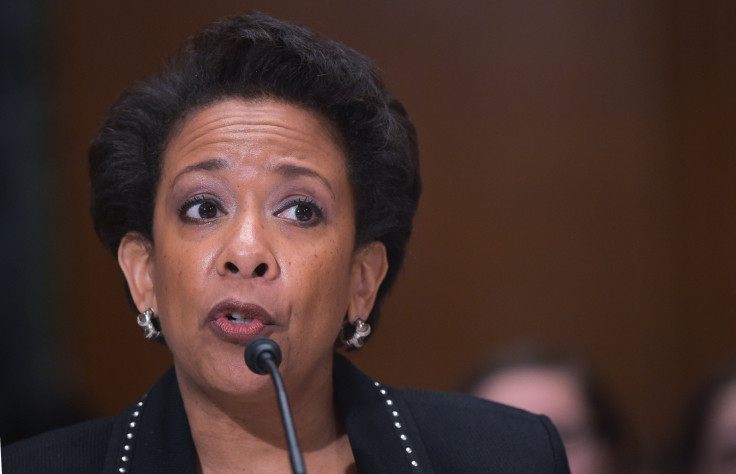As Banks Face Historic Guilty Pleas Over Foreign Exchange Manipulation, Critics See Regulators Going Easy

This week, the Justice Department is expected to make a historic announcement: Major American banks are pleading guilty to criminal charges. After years of complaints over what watchdogs see as tepid bank punishments, federal prosecutors will finally bring home the prize catch. After the hefty fines and guilty pleas fall from the news cycle, however, it will be business as usual for the banks.
These tough settlements, which would resolve charges over a wide-ranging scheme to manipulate benchmarks in the $5.3-trillion-a-day currency markets, have a gentler side: regulatory relief from key government agencies.
Even as JPMorgan Chase, Citigroup, Barclays and Royal Bank of Scotland prepare to plead guilty on antitrust charges, they have maneuvered to steer clear of the stiffest consequences, according to reports. The DOJ has reportedly delayed the planned settlements so that banks could finish a mad dash to ensure that regulators spare them from automatic penalties.
To Jacob Frenkel, the paradox highlights the limitations of bringing criminal charges against institutions rather than individuals.
“The fundamental point is that you cannot put a bank in jail,” says Frenkel, a former SEC enforcement counsel and assistant district attorney. “Whether it’s a bank or any other company, institutions only act through individuals.”
Collateral Damage
Without the waivers and exceptions, the banks expected to enter guilty pleas could suffer significant collateral consequences, including the loss of privileges around offering securities and making forward-looking statements in securities filings. They could also lose the privilege of overseeing mutual funds and retirement accounts. But former regulators say the banks' willingness to plead guilty rests on avoiding those penalties.
The decision to grant or deny waivers in those cases lies with the Securities and Exchange Commission. Lawyers from the banks involved have petitioned the agency to go easy, as Reuters and the New York Times have reported, citing sources close to the discussions.
Before any banks sign off on settlements, they want to make sure the consequences won’t be crippling, says Marc Leaf, a former legal counsel at the SEC. “The defense counsel wants to know what the effect will be on their client.”
But others see the exceptions as a government giveaway. “There shouldn’t be a different system of justice for big institutions,” says Lisa Gilbert, a policy director at the advocacy group Public Citizen. “That just leads to more wrongdoing.”
JPMorgan and Citigroup are expected to be the first American banks to enter guilty felony pleas in at least two decades. Traders from those and other banks are accused of colluding to manipulate prices in the massive foreign exchange markets, affecting a whole universe of derivatives, options and currencies.
It won’t be minor subsidiaries of the banks taking the brunt of charges, like Swiss lender UBS’s Japanese unit in 2012, but the parent companies themselves, reports say. (In the present case, UBS will reportedly pay a fine and plead guilty over previous Libor charges.)
It’s a turning point for the DOJ, which has been loath to bring guilty charges against major banks for fear of landing a deadly blow against institutions central to the global economy. Banks often point to the experience of Arthur Andersen, Enron’s former accounting firm, which went belly-up under indictments that were later overturned.
But after securing pleas against a handful of European banks over the last year without sending any of them into a tailspin, prosecutors have become more confident that a guilty plea is not a death sentence.
Too Big To Bar
The government has been able to push the pleas in part because of its assurances that regulators will cooperate to keep punishments from being lethal to banks. Former Attorney General Eric Holder explained the approach last year announcing a settlement with Credit Suisse: “Because criminal charges involving a financial institution have the potential to trigger serious follow-on actions by regulatory agencies, this coordination was imperative.”
Frenkel questions the wisdom of that policy. “To put a bank in the position of needing a waiver to stay in business only puts at risk the institutions themselves and the stability of the financial markets,” says Frenkel, who now practices at DC law firm Shulman Rogers.
And not every member of the SEC has been so willing to oblige the banks with waivers. In a number of recent cases, Democratic commissioners Kara Stein and Luis Aguilar have lodged fiery dissents with their three counterparts, who have invariably granted the exceptions.
In a 2014 letter, Stein wrote, “I fear that the commission’s action to waive our own automatic disqualification provisions may have enshrined a new policy -- that some firms are just too big to bar.” Rep. Maxine Waters, D-Calif., also raised questions over the policy in a letter last week.
Uncertainty over SEC plans has been seen as one of the final hurdles holding up the settlements. The commissioners will not vote on waivers until after charges are announced.
Leaf, who worked under Commissioner Aguilar, doesn’t consider the waivers to be as egregious as some suppose. “It’s easy to overreact to the politicization of this issue,” he says, noting that the waivers oftentimes concern matters that have little to do with the misconduct banks are pleading over.
“Usually the SEC looks at these things from what’s necessary to protect investors,” Leaf says. “They generally do a very good job with it.”
To Frenkel, however, the pell-mell over waivers simply highlights the drawbacks of targeting institutions over individuals. (It remains unclear whether the government will move forward with charges against individuals over foreign exchange manipulation.)
“No matter what number will be chosen, there will always be someone who says it’s not enough,” he says of the multi-billion-dollar penalties the DOJ typically extracts. “I’m questioning whether it’s even proper to prosecute the institution.”
© Copyright IBTimes 2024. All rights reserved.





















